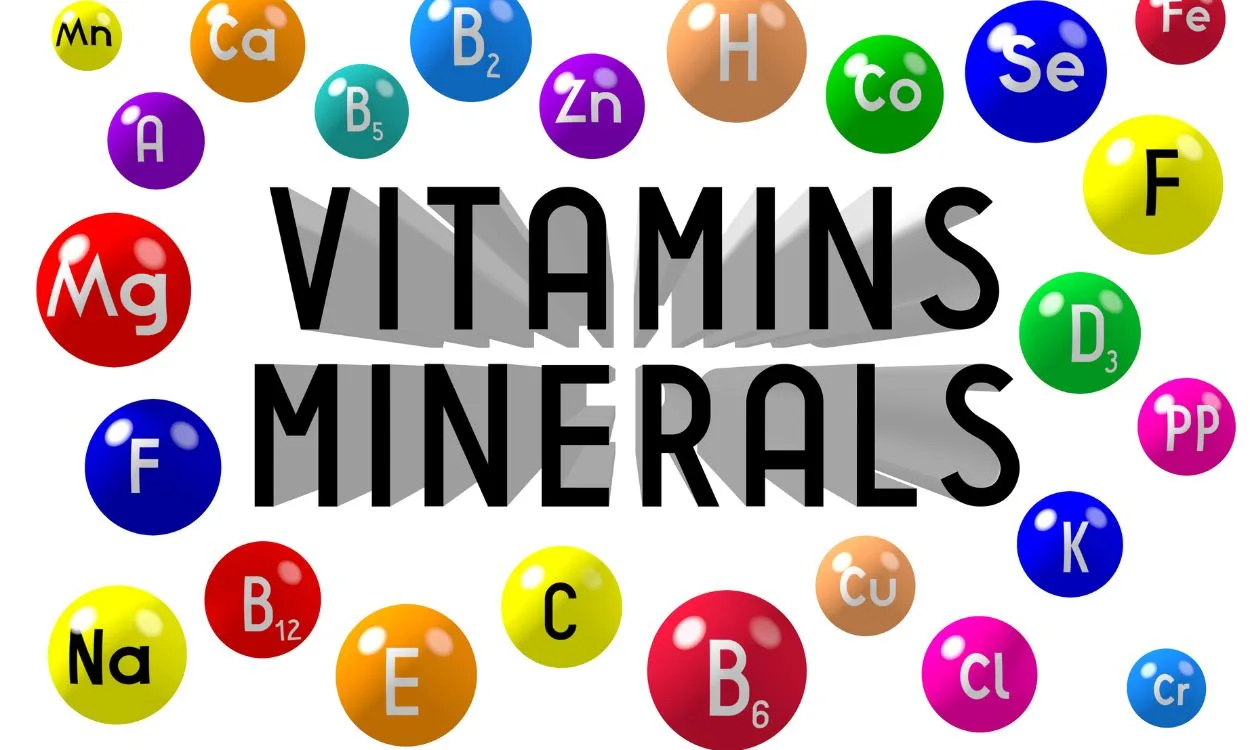What are the Different Types of Vitamins and Minerals?
Vitamins and minerals are essential nutrients that our body needs to function properly. They play a vital role in various bodily functions, such as metabolism, immune system support, and overall well-being. In this article, we will explore the different types of vitamins and minerals and their importance for our health.
Vitamins
Vitamins are organic compounds that are required in small amounts for the normal functioning of our body. They are essential for growth, development, and maintaining good health. There are two types of vitamins:
- Water-Soluble Vitamins: These vitamins dissolve in water and are not stored in the body. They need to be consumed regularly as excess amounts are excreted through urine. The water-soluble vitamins include:
- Vitamin B1 (Thiamine): Helps convert food into energy and plays a role in nerve function.
- Vitamin B2 (Riboflavin): Important for energy production, metabolism, and maintaining healthy skin and eyes.
- Vitamin B3 (Niacin): Supports energy production and helps with proper functioning of the nervous system.
- Vitamin B5 (Pantothenic Acid): Required for the metabolism of carbohydrates, proteins, and fats.
- Vitamin B6 (Pyridoxine): Plays a crucial role in brain development and function, as well as the production of red blood cells.
- Vitamin B7 (Biotin): Essential for metabolism and the synthesis of fatty acids.
- Vitamin B9 (Folate): Important for the production of DNA and healthy cell division. Particularly crucial during pregnancy.
- Vitamin B12 (Cobalamin): Necessary for the formation of red blood cells and the maintenance of the nervous system.
- Vitamin C (Ascorbic Acid): An antioxidant that supports immune function, collagen production, and iron absorption.
- Fat-Soluble Vitamins: These vitamins dissolve in fat and are stored in the body’s fatty tissues and liver. They are not excreted as easily as water-soluble vitamins. The fat-soluble vitamins include:
- Vitamin A: Essential for vision, immune function, and growth and development.
- Vitamin D: Helps the body absorb calcium and phosphorus, promoting healthy bones and teeth.
- Vitamin E: Acts as an antioxidant, protecting cells from damage, and supporting immune function.
- Vitamin K: Plays a role in blood clotting and bone health.
Minerals
Minerals are inorganic substances that are essential for various bodily functions. They are necessary for the proper functioning of enzymes, maintaining fluid balance, and supporting structural components of the body. Here are some important minerals:
- Calcium: Crucial for healthy bones and teeth, muscle function, nerve transmission, and hormone regulation.
- Iron: Necessary for the production of red blood cells and oxygen transport throughout the body.
- Zinc: Supports immune function, protein synthesis, wound healing, and DNA synthesis.
- Magnesium: Important for energy production, muscle function, nerve signaling, and maintaining healthy bones.
- Phosphorus: Required for energy production, bone and teeth formation, and DNA synthesis.
- Potassium: Helps maintain fluid balance, nerve function, and muscle contractions.
- Sodium: Essential for maintaining fluid balance, nerve function, and muscle contraction.
- Iodine: Required for the production of thyroid hormones, which regulate metabolism and growth.
- Selenium: Acts as an antioxidant, supports thyroid function, and helps the immune system.
- Copper: Important for the production of red blood cells, collagen synthesis, and energy production.
- Manganese: Supports bone health, carbohydrate metabolism, and antioxidant defense.
- Chromium: Enhances the action of insulin, which is important for blood sugar regulation.
- Molybdenum: Plays a role in breaking down amino acids and purines, supporting normal cell function.
Conclusion
Vitamins and minerals are essential nutrients that our body requires in varying amounts to maintain optimal health. They play vital roles in various bodily functions, such as metabolism, immune function, and bone health. To ensure you meet your daily vitamin and mineral needs, it’s important to consume a balanced diet that includes a variety of nutrient-rich foods.
While a healthy diet is the foundation for good health, technology-driven solutions like Fitpaa can help individuals optimize their metabolism and achieve their health and fitness goals. Fitpaa combines the latest research in lifestyle medicine and behavioral therapy to provide personalized capsules that address individual needs and support overall well-being. To get started on your journey towards a healthier lifestyle, download the Fitpaa app and experience the joy of achieving your health and fitness goals with guaranteed results.









